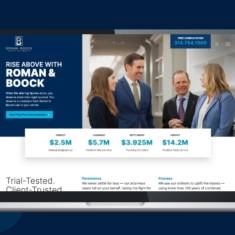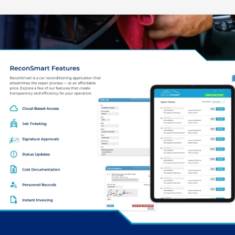Run the Numbers: Marketing Automation Analytics
12.13.18
We’ve shared much about marketing automation tools and how they drive more integrated marketing by uniting things like contacts and content. However, these tools are also a great source of marketing intelligence, supplying the rich data to understand how your campaigns are performing and how to improve them. Let’s look at a few sources of marketing automation analytics.
Traffic Sources
Some marketing automation tools provide insights on which sources are bringing traffic to your site. You may get this same data from tools like Google Analytics, but marketing automation tools go a step further by attaching that “anonymous” visitor data to real users in your contact list. There’s simply no better way to identify exactly who visits your website, when they visited and where they clicked.
Marketing automation is a single application for all of your marketing needs, including traffic analytic. Using these platforms lowers confusion between softwares and keeps all of your data and marketing efforts in one, convenient place.
Email Campaign Statistics
Automation tools also provide additional insight into the performance of any email campaigns you run with them. With this data, you are able to make audience, messaging or automation optimizations to the keep the campaign performing at its highest level.
These tools provide up-to-date information about your email’s click-through rate, open rate and unsubscribes, along with several other metrics that are important to any email campaign. This way, you’ll make immediate and calculated decisions to maximize your campaign’s effectiveness
Social Statistics
Many marketing automation tools also allow users to view and manage their social media data inside the application. Using this functionality will provide users with the knowledge of how their social campaigns are reaching their target audience, in real time.
From here, you are able to see how your contacts are interacting with your social media platforms. These social platforms provide basic data about how successful your posts are, but marketing automation tools understand who your targets and contacts are. Having the capability to see how they are engaging with your social efforts will drive more optimized content strategy and contact segmentation.
Email Reports
Lastly, marketing automation tools provide detailed reports of your email marketing initiatives, including key metrics like: open rates, click-through rate, unsubscribes and bounces. These reports give you the data to better understand who’s reading your emails and what they expect from your content.
A great email sparks an additional action from your reader, whether that’s clicking a link or filling out a form. Marketing automation email reports will also detail these specific actions by user, allowing you to refine your contact lists and send more targeted messages to users you know are interested and engaged in what you have to say.
That’s a wrap on our series of marketing automation stories. If you haven’t guessed by now, these platforms are on track to become some of the most powerful, essential tools for any business looking to advertise with sense and simplicity. Get started now and get ahead of the game.


